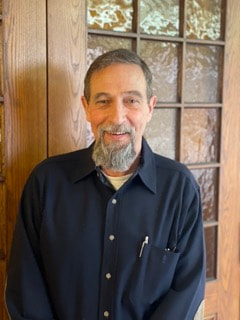As I have attempted to settle in to my attempts at a more disciplined or structured devotion time for self-reflection, and identify opportunities for positive change, it has occurred to me that 40 days is a significant length of time.
It is usually at this point in our 40 days of Lent that this occurs to me. Trying to incorporate spiritual discipline and time for reflection in a more concentrated and intentional way, than at other times of the year, while the world, our world, continues on as usual, with the accompanying distractions, demands on our time, and requirements. And the distractions seem particularly loud this year, the excitement of what is hopefully, a waning pandemic, mixed with the grave concerns of global events. And as God would have it, our lectionary readings provide us encouragement, at this halfway point. Beginning with Moses, as God captures Moses’ attention in dramatic fashion with a flaming bush, that is not consumed by the fire. Once God has Moses attention; God provides an assignment to Moses, “So come, I will send you to Pharaoh to bring my people, the Israelite s, out of Egypt.” From Moses’ perspective that does not seem a small, easy, or insignificant assignment, as evidenced in his response toGod, “Who am I, that I should go to Pharaoh, and bring the Israelites out of Egypt?” And God’s response, “I will be with you”, as God is with us, always. And we receive a pep talk of sorts from Paul in his letter to the church at Corinth. The Church in Corinth is young and evolving, even exhibiting some growing pains. There have been some disagreements, debates and factions within. In today's portion, of this first letter of Paul to the Corinthians, Paul makes comparisons and draws parallels between the Israelite s journey out of Egypt and the young church in Corinth. It would appear that “people are people” pretty consistently overtime. Remember, the Israelite s received guidance, the waters parted for them, they received manna from heaven, and water brought forth from a rock, in order to sustain them. They experienced God’s presence through Moses, as the church members in Corinth experienced God’s presence through Christ. And this is Paul’s cautionary tale: Be aware of the example provided through our ancestors - idolatry, immorality, complaining, grumbling. Paul acknowledges these elements of the human condition are shared by us all. … and the “pep talk” piece of this, is whenPaul offers the reassurance that God is faithful, with the test or with the temptation, God will provide the way of escape. We are in between;
At this point, at this 3rd week in our observance of a holy Lent, we are reminded by Paul and Moses, that God is very present with us. God accompanies us, sustains us, as we encounter the reality of life and how that can, at times, feel so contrary or challenging to our spiritual pursuits. And then in today’s Gospel, we are encouraged, no, urged, to take stock, to take an inventory - and then, as a result of this inventory, change where we need to. The stage is set for us here in the tales of the Galileans killed by Pilate and those individuals that lost their lives when the tower of Siloam fell on them. Throughout our history as humans on Earth we have asked, “Why do bad things happen to good people?” “Were the Galileans worse sinners than other Galileans?” Were the 18killed by the falling tower worse offenders?” Jesus clearly answers, “No” … and then He adds that sense of urgency, “but unless you repent you will all likewise perish.”This is not to be interpreted as a threat of punishment, rather, an encouragement to be aware of grace and to develop a new way of seeing. The Gospel today, at this halfway point, reiterates our words from Ash Wednesday, - we are “invited to the observance of aHoly Lent by self examination and repentance.” This word repentance; - to repent has been defined as, “to feel so contrite over ones sins as to change or decide to change one’s ways or to change one’s mind to a new way of seeing things.” And I am quite struck by the parable of the fig tree, as it drives the point home: Lent is not passive - It is action oriented - the gardener will be busy preparing the fig tree for the following year - digging, fertilizing, tending, in order to maintain life. This parable raises questions for us, at this halfway point:
Today’s readings, taken as a whole, bring home wonderful encouragement to us, at this point in our Lenten journey: God is with us God is faithful God provides the way out of testing and temptation God urges us to action I would like to leave you with a Lenten prayer by the Most Reverend Arthur Lichtenberger, who was presiding Bishop from 1958 until 1964. Lord may I Fast from judging others Feast on Christ dwelling in them Fast from fear of illness Feast on the healing power of God Fast from words that pollute Feast on speech that purifies Fast from discontent Feast on Gratitude Fast from anger Feast on patience Fast from pessimism Feast on optimism Fast from negatives Feast on alternatives Fast from bitterness Feast on forgiveness Fast from self-concern Feast on Compassion Fast from suspicion Feast on Truth Fast from gossip Feast on purposeful silence Fast from problems that overwhelm Feast on prayer that sustains Fast from worry Feast on faith ~ Amen Comments are closed.
|
We are blessed to have a diversity of preaching voices in our parish. Our guild of preachers is a mixture of lay and clergy. We hope you enjoy the varied voices. Meet our Preachers
All
Archives
July 2024
|
